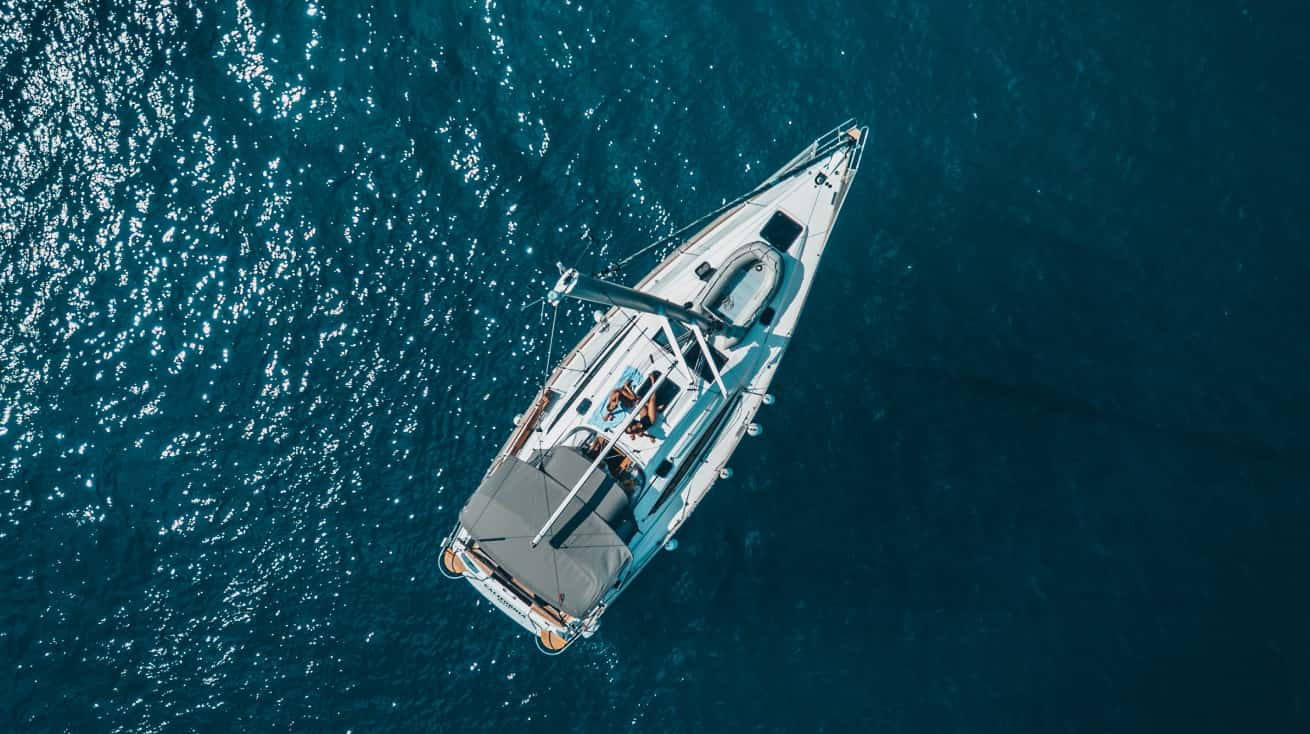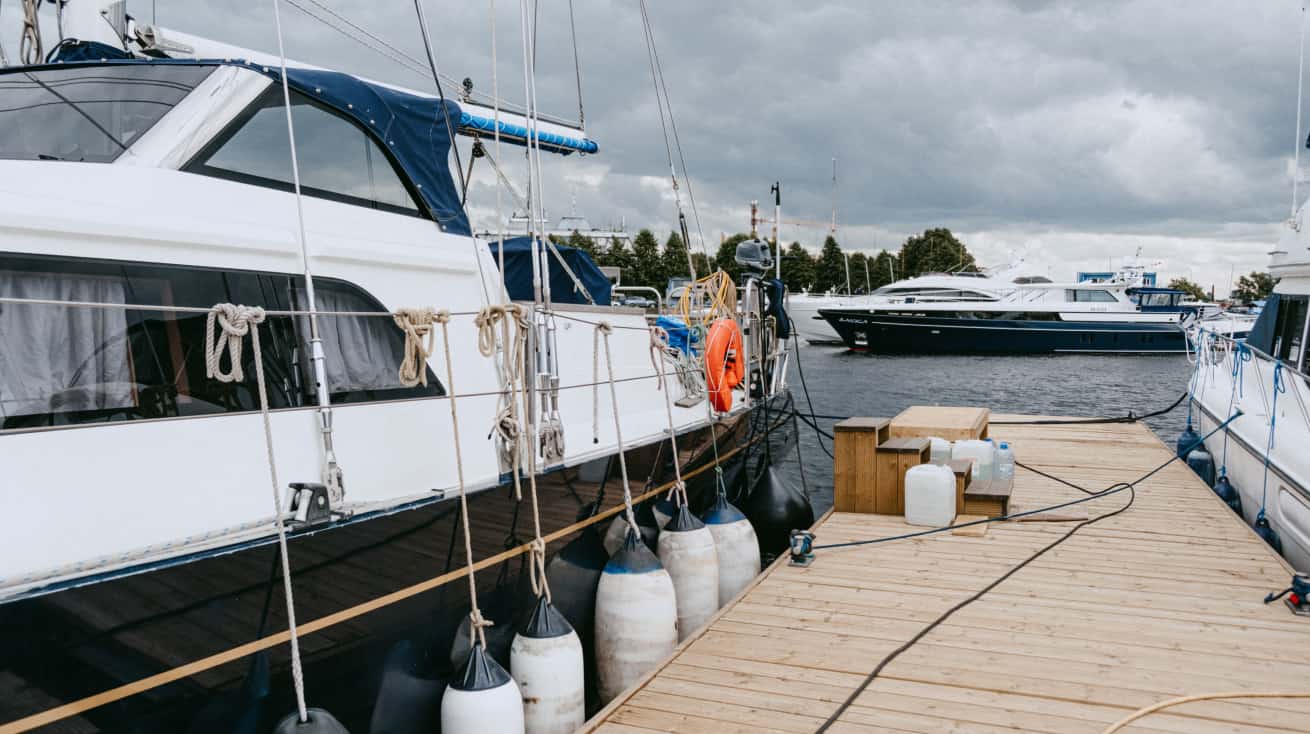Buying a boat is a big investment. Be sure you consider the long-term costs of boat ownership when budgeting for your purchase.
Budgeting for your boat purchase
Before signing on the dotted line for a new or used boat, it’s a good idea to carefully plan for the expenses that come with boat ownership. In this guide, we’ll try to help you build a budget you can rely on so you can make a smart purchase decision.
Upfront costs and financing
Down payment
Just as when you buy a new car or truck, a boat dealership will typically require a down payment at signing when you purchase a boat. The amount of your down payment will vary by dealership and according to the promotional environment when you buy, but in most cases, you can expect it to be in the thousands of dollars.
Monthly payments
Unless you plan to pay for your boat out-of-pocket in a lump sum – an option available to few – you’ll need to apply for a boat loan and set up monthly payments, just like with a car. Terms for boat loans are usually longer than for car loans, so while your payments may be more affordable than you expect, you’ll be making those payments over a period of many years. Remember that the more you finance, the more you’ll pay for your boat over the long term.
Want to get a rough idea how much you might pay per month, and for how long?
Don’t overlook the trailer.
If you won’t be using your boat year-round, you’ll need a trailer to transport it to and from the water. You’ll also need a vehicle capable of towing the trailer with your boat on it. In most cases, this will be a half-ton or three-quarter-ton pickup truck, although a small jon boat or aluminum fishing skiff may be towable by an SUV or even a large sedan. You shouldn’t overlook these costs in your budgeting – but be aware that in some cases, you may convince a dealer to throw in the trailer with your boat purchase as a deal sweetener.
Registration and licensing
Regulations vary by state, but generally speaking, if your boat has a gas, diesel or electric motor, you’ll be required to register it in the state where you live before you can legally operate it on public waterways. As with cars, the cost of registering your boat goes down as the boat ages. This means that a new boat will cost more to register than a similar used boat. Depending on the size and age of your boat, registration costs may range from around $25 dollars to a few hundred dollars a year, so don’t overlook them in your planning.
Many states will require you to pass a boat certification test before you’ll be granted a boating license. In many cases, this is accomplished through an online training course and an online test, and many states provide this certification program free of charge. But if you live in a state where only in-person or paid certifications are offered, you’ll need to plan for this, as well as for the cost of the license itself.
Boat insurance
Certain states require boat insurance, and many lenders will require damage coverage before financing a boat. Even if insurance isn’t required, you’ll likely want to consider at least liability insurance if not full coverage to protect your investment. Costs vary depending on the insurer and the area where you live, but a good rule of thumb is 1 to 2 percent of the boat’s market value in annual premiums.
Fuel costs
With the current high cost of fuel in the U.S., fuel economy should be an important consideration when you buy a powerboat. Other design considerations apply as well, but as a general rule, the bigger the boat and the more powerful the engine(s), the more fuel you’ll consume. If you use your boat a lot, those costs can really add up.
Gas vs. diesel
Depending on the boat you buy, you may have the option to choose a diesel or gasoline engine. Diesel engines cost more to buy and service. However, they also have fewer moving parts, so they typically require less maintenance and fewer repairs – and they typically last longer than gasoline engines.
Diesel fuel continues to be more expensive per gallon than gasoline (even premium gas, which is required by many boat engines). But because diesel engines are more fuel-efficient, your overall cost for diesel fuel may actually be less.
Boat maintenance and repairs
Just like any other vehicle, a boat needs regular maintenance to perform its best and deliver years of trouble-free operation. Many of the scheduled engine services are the same as you’ll encounter with a car or truck: regular oil changes, fuel filter, lube for moving engine parts, replacement of aging fuel and fluid lines, etc. The boat’s battery and electrical system should also be checked regularly.
Your boat’s exterior and interior surfaces should be cleaned regularly and thoroughly. Fiberglass decks can become clouded and brittle without proper cleaning and waxing. The boat’s hull will likely need painting at the beginning of every season, particularly if you run your boat in saltwater or rough conditions. Onboard systems like HVAC and plumbing must also be inspected and repaired as needed to avoid breakdowns.
As with a car or truck, it goes without saying that as a boat owner, you should be prepared for the unexpected. Necessary repairs can come up at any time, and you’ll need to be able to pay for them if you don’t want your boating season cut short.
Equipment and accessories
You’ll want to carefully consider the additional equipment you’ll need to complete your boating experience. There are several types of supplies and accessories to think about.
Safety equipment
First and foremost, you need to be fully equipped for your safety and the safety of your passengers. In addition to preparing you for a worst-case scenario, making sure you have these items on board for any excursion will save you a lot of trouble if local authorities ever board your boat and find them missing or not in working order:
- Life jackets for every passenger
- One or more flotation devices that can be thrown to a person in distress
- Fire extinguishers
- Visual signaling devices for daytime and nighttime use (flares, flags, strobes and the like)
- Audible signaling devices (horns, whistles or bells)
You should also consider additional (though unrequired) safety items like a medical kit, heavy-duty flashlight, oars or paddles in case the engine quits, and an anchor to hold you in place until help arrives.
Recreational accessories
Be sure to plan for the additional cost of toys and equipment you’ll want with you on your adventures. This could include items like:
- Fishing gear and mounts
- Waterskis or wakeboards
- A refrigerator or grill station
- A bimini top or boat canopy to shield you from the sun
- Anything else that will make boating more fun for you and your family or guests!
Boat storage
Last but certainly not least, unless you plan to use your boat year-round, you’ll need a place to store it during the offseason.
Home storage
If you have the space for it, the most cost-effective option is to store your boat on a trailer in your yard or garage. For this, you’ll need both the trailer (which you’ll likely purchase with your boat anyway) and either a shrink-wrap or durable canvas cover. Unless you have a heated garage where your boat will be well protected from the elements, you’ll also need to perform a full winterization to ensure your boat will be ready for action in the spring. Many boat owners leave this process to the pros; it’s likely to cost you anywhere from a few hundred to more than a thousand dollars, depending on the size of your boat and the number of engines it has.
If you’re unable to store your boat at home, other options are available, each with its own pros and cons.
Outdoor storage
Outdoor boat storage can be found near most popular boating spots, typically in the form of a large, fenced lot that’s locked when not being accessed. Since your boat will be exposed to the elements, you’ll need the same coverage and preparation as with home storage to ensure it’s well protected. This type of storage is relatively inexpensive and usually based on the length of your boat. One potential downside is that depending on whether the lot is staffed during business hours, you may not be able to retrieve your boat exactly when you want to.
Indoor stacked storage
Also available are indoor facilities with vertical slots where hundreds of boats can be stored in the offseason. This type of storage takes the worst of the elements out of play during bad weather, but be sure to winterize your boat before storage if the facility is not climate controlled. More expensive than outdoor storage, indoor stacked storage also may slow you down a bit on your race to the water, since you’ll need help from staff to get your boat down off the stack and out the door.
Self-storage
Self-storage units are easy to find in most locations and can be a safe, well-protected option for storing your boat over the winter months. In addition to keeping your boat safe from wind and rain, many self-storage units offer climate control, which significantly improves protection from the elements and may help you avoid winterizing your boat at the end of every season. Some also have 24-hour security to prevent theft and vandalism, which can provide extra peace of mind. They tend to be pricier than other storage options, however.
Marina storage
If you’re fortunate enough to moor in a locale where the weather stays mild year-round, you may choose to store your boat in a rented slip at a local marina. This option gives you the quickest and most convenient access to your boat when it’s time to embark.
If there’s a risk (or a certainty) of foul, freezing weather over the winter, you’ll need to fully winterize your vessel and employ an agitator (a device that keeps water moving to prevent solidification in freezing temps). Your boat will still be exposed to hazards, including potential pest infestation or marine-life buildup on the hull. And there are other risks, including the possibility that a power outage at the marina could stop your agitator, resulting in ice buildup and potential hull damage. For additional protection, mount your boat on a lift in the slip, out of the water.
Boat buying tips

Choosing the right boat
Learn about different kinds of boats and find the one that’s right for you.

Should you buy a new or used boat?
When buying a boat, there are good reasons to consider both new and used. Let us help you decide.
Explore your options
Related resources

Ready to start shopping?
Now that you have a handle on the costs associated with owning a boat, it’s time to find the right boat for you. Browse our online boat marketplace for new and used boats available from participating dealers in your area.

